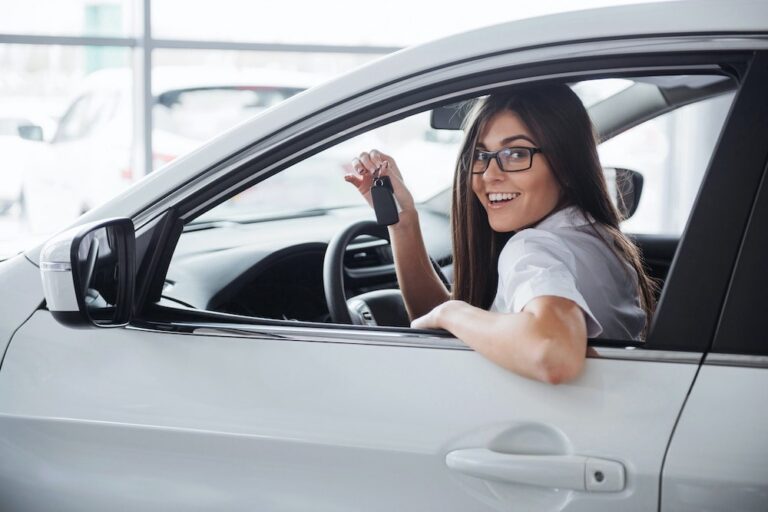Talk to Sales: (401) 200-6026

The world as we know it is quickly changing. Digital revamps, the growing Web 3.0 momentum and new realities post COVID-19 have businesses across various industries wondering “what’s next?” The car dealership industry is no exception. While many of the sales and business principles that govern automobile sales have remained the same through the years, times are undoubtedly changing. And dealers must keep up.
Fortunately, there has been no shortage on the innovation side to help car dealers adapt to the changing times. Sales teams and car dealership owners and managers must stay vigilant to the changes that digitization and the global pandemic continue to bring on them. One of the solutions that you should start looking into if you’re in the car dealership business is automotive CRM software providers.
The CRM Software Movement
So what is CRM software? A CRM or Customer Relationship Management system is a tool that helps a company or individual prospect, qualify leads, and then move them through a funnel that will turn them into customers. It’s also a great resource for customer service and after-sales. Some of the capabilities that CRM tools bring include:
- Sales and customer support automations
- Prospect mining
- Customer management
- Lead generation
- Text message marketing
- Sales analysis and reporting
- Email blasting
- Customization
- And so much more
The CRM software market is set to have a value of $128.97 billion by 2028 at a CAGR of 12.1%. Accordingly, it makes sense to start looking into CRM for car dealers in order to experience these features and the benefits they bring. With a CRM solution, car dealers can generate more prospects, move them more efficiently through a pipeline, and process transactions better to ensure customer satisfaction.
Challenges CRM Software Can Help Car Dealerships With

You have to admit that these have not been the easiest of times to be a car dealer. Global car sales dropped from 74.9 million units to 63.8 million from 2019 to 2020. What are the challenges that car dealers now face and how can using CRM software solve that issue? Let’s look at some of the most common issues.
1. The new car supply bottlenecks
Because of the COVID-19 pandemic, there has been a major slow-down on new car order shipments. Certain travel restrictions and lowered workforces in factories due to health protocols are some of the root problems that have affected this bottleneck. Accordingly, the whole supply chain has been affected by it and dealers are not exempt. There’s been a major change in car buying experiences since COVID. Because clients have to wait longer on their orders, sales have slowed down. Moreover, customers aren’t as happy now as they once were.
While the whole market for new cars is beyond our control, there are ways we can respond well. Using CRM tools to manage customer expectations and give them timely reports can be a big leap forward. Car dealer personnel can use a CRM’s contact management tool to send their waitlists timely feedback that will provide more peace of mind and confidence that the deal will push through. It certainly beats manual systems, where some clients fall through the cracks several times a year.
2. An increased demand for used cars
More car buyers are resorting to used cars nowadays because of two main reasons, either because of a restricted budget or the lack of new car inventory due to chip shortages. A lot of it depends on your customer base, your location, and what kind of vehicles the dealership normally sells.
Auto dealer CRM software can increase used car sales for your dealership even when your inventory is limited. Use the CRM software to review your customers’ wishlist vehicles, contact them via text or email if you have something close or better yet target those vehicles when you visit the auction. Using the CRM to follow up with customers on their request shows you care about their needs and can go a long way in creating the best impression.
3. Aftersales remains critical
Because people are traveling less in the hybrid work environment that many professionals have now adopted, servicing cars is not much of a priority. But there are other ways that car dealers can add value to existing customers. For one, sanitation and deep cleaning on vehicles seem to be at an added premium with the pandemic. Moreover, people are looking for ways to put preventive maintenance on issues caused by lower usage, such as moisture buildup, faded paint, gas tank breakdown and so on.
Car dealers can use CRM systems to track their customer’s history and provide more insight into when you should approach them for a tune-up and what kinds of issues their cars might face today. On top of using CRM tools, you can deploy ERP software solutions to make internal changes to service priorities should also help a company get on the right track in terms of aftersales.
Subscribe to our Newsletter
Resources to help your dealership convert more leads into sales, retain more customers, and market inventory smarter, straight to your inbox every Sunday.
4. Annoying prospects with irrelevant messages
Customers are getting smarter when it comes to the text messages and emails they receive from companies. Car sales in the digital age are nothing like it once was. More people know about promotional emails and spam messages than they did back in the early 2000s. So now, what car dealers need to do is personalize messages. The more relevant an upsell, the more likely prospects will turn into hot leads.
Using some of the best CRM for auto dealerships to avoid the lazy text blasts should be one of a car sales team’s priorities in 2022 and beyond. Create niches and personas that your car dealership can service best. Then customize your message to respond to their pain points. If you’re targeting new families, what are the issues they face with a new car? What are their top priorities— safety, style, or fuel-efficiency? What’s their budget like? Using a CRM tool to personalize these campaigns will help increase your conversion rates.
5. Changing customer behavior
When the markets change, it’s generally because people’s consumer behaviors change. That’s nothing new under the sun. People change all the time. As businesses, we need to be able to spot those changes and adjust accordingly. Here are just some of the many noticeable changes that your car dealership should know about.
- Customers are making quicker decisions. That’s because speed is of the essence and people want things faster now.
- Customers look for online channels. 7 out of 10 buyers are more likely to buy from a dealership if they’re able to start the process online. So the question now is whether your dealership has that capacity? At the bare minimum, a dealership should have social media channels— Facebook at the very least (and probably an Instagram account)— and an official website. There are some great car listing sites that you should be on too.
- Customers are becoming more mobile. 63% of consumers now use their mobile phones to compare car prices online.
Having an auto dealership CRM software integrates all the channels and platforms that your dealership has into one stream so that your sales and admin team can be ready to adjust to the fast-paced digital activities of your potential clients.
8. Fear is still a factor
Of course, there are still some people who are afraid of contact because of the COVID-19 situation. And because sales representatives should do their best to never leave anyone out, we need to have contactless sales tools for people who want to transact with lesser face-to-face interaction. A CRM tool can help make that happen by giving customers who want more health safety a channel to reach out to anytime from the comfort of their own homes.
Selecting the Best CRM Software for the Job
So how do you select the best CRM for their car dealership? The best thing to do is determine what your needs are first and which of the pain points mentioned above you need to deal with. Check out various automotive CRM reviews and see what existing clients of CRM providers have to say about their experience with the tool. When you pick the right tool for the right job, you’ll be in a better position to grow in the coming years despite all the challenges and changes.
Subscribe to our Newsletter
Resources to help your dealership convert more leads into sales, retain more customers, and market inventory smarter, straight to your inbox every Sunday.




